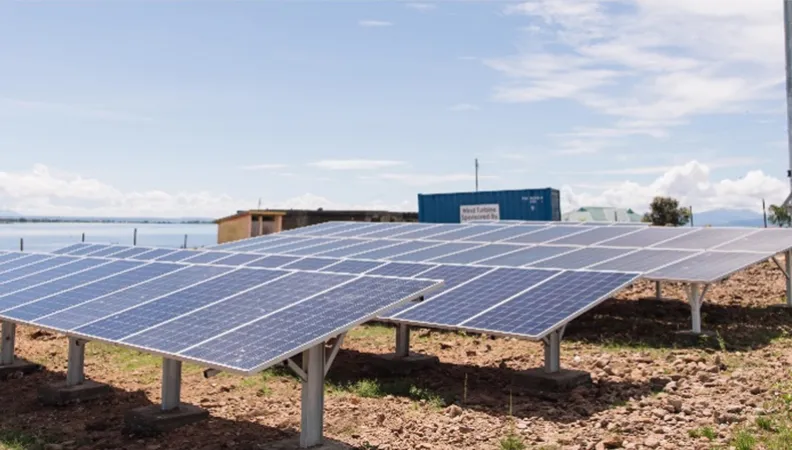Share the page
Promoting private sector investment in renewable Green mini-grids to electrify rural communities
Project
This project is carried out with the support of the European Union



-
Project start date
-
Status
Ongoing
-
Project end date
-
-
Project duration
-
10 years
-
AFD financing amount
-
€ GBP 9.4 M + EUR 5.97 M
-
Country and region
-
Location
-
Siaya, Nyamira, Kisii, Busia, Turkana, Kajiado, Kericho Counties
-
Type of financing
-
Beneficiaries
-
Powerhive, PowerGen, KUDURA/RVE.Sol, Renewvia

This project is carried out with the support of the European Union

The content of this project information sheet falls under the sole responsibility of the AFD and does not necessarily reflect the opinions of the European Union.
This objective of Green Mini-Grid project is to improve the economic development and well-being of populations in rural areas by supporting the development of mini-grids supplied by renewable energy sources, developed by the private sector.
Context
Although Kenya exceeds the average rate of access to electricity in sub-Saharan Africa, the gap between urban and rural areas remains very wide.
Due to the population distribution across the country, the development of a national electricity grid covering remote areas is impossible in the short term.
Therefore, mini-grids play a key role in providing universal access in line with the SDG 7 goals.
Description
- Through the GMG facility, 100,000 Kenyans will get access to reliable green electricity through 20,000 new connections;
- 2 megawatts of energy will be added to Kenya’s energy resources;
- 6-8 mini-grid developers will be supported via grants and/or technical assistance.
Impacts
- The Mini-grids provides stable energy to develop income-generating activities, which enhances people’s lives. It also lowers the dependence on diesel, firewood and charcoal thereby reducing greenhouse gas emissions;
- The final beneficiaries of this electricity now have access to services that would not have been available without electricity (e.g. water, communication via radio and cell phone, healthcare improvements, children being able to study at night, night businesses (restaurants, bars etc.);
- From a gender perspective, women have better access tohealthcare facilities, and they are empowered to start new businesses;
- The project will also reduce women’s effort and chores involved in household activities such as indoor smoke pollution from cooking stoves and having to gather firewood daily.
Sustainable Development Goals
Affordable and Clean Energy
Goal 7 lies at the heart of today’s major challenges and tomorrow’s opportunities. Access to sustainable energy is essential not only for fighting climate change, but also for job creation, housing, connectivity, safety, food production, and more. This SDG represents a clear opportunity to transform lives, economies, and the planet.



